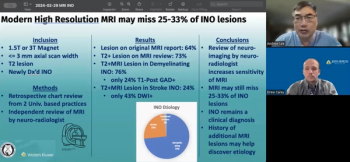
- Ophthalmology Times: July 1, 2020
- Volume 45
- Issue 11
The value of a reputation: Mixing medicine, politics a bitter pill
Needless to say, the
Results of recent reports from the University of Oxford indicate that dexamethasone, an inexpensive generic drug, significantly reduced deaths when used in very sick patients with
Also by Dr. McDonnell:
The drug reduced deaths by a third in patients on ventilators and less severelyaffected patients receiving supplemental oxygen. Presumably the drug works by blunting the exuberant inflammatory response (the so-called cytokine storm) that the immune system mounts in some patients.
Dexamethasone is not the first drug with claims to be effective against the coronavirus. Remdesivir, in a study of 1063 patients funded by the National Institute of Allergy and Infectious Diseases, was shown to reduce median recovery time from 15 to 11 days.
I can assure you that in academic medical centers like mine, where many were worried this spring that they would be overwhelmed by severely ill patients, a one-third reduction in the time these patients needed to be on a ventilator in our intensive care units was a very big deal.
Related:
As far as I can tell, 1 drug—hydroxychloroquine—has received an inordinate amount of attention in the lay press. Some described it as very risky, but we ophthalmologists are very familiar with hydroxychloroquine because we use it to treat patients with lupus, who generally tolerate it well, and we follow these individuals for signs of retina toxicity.
My view is that the truth will win out. Medicine is a science, I have always believed, and the truth will always become clear as additional research is performed and published.
So I was confident that the issue surrounding hydroxychloroquine’s efficacy would become clear.
As such, when the almost 200-year-old prestigious British medical journal the Lancet published a paper reporting that hydroxychloroquine both was ineffective at treating the coronavirus and caused cardiac complications, my initial reaction was that we seemed to have had our answer: The drug is apparently not helpful. Science is science, after all.
Imagine my disappointment upon learning the following:
> The data used to reach the conclusion in the published paper may not exist. The Harvard professor who was lead author, Mandeep R. Mehra, MD, reported via a hospital spokesperson that “he never saw any of the data.” According to newsreports, the small company Surgisphere generated the data.
> Surgisphere claimed that it had access to enormous patient databases from health-care systems and electronic health records providers. But news organizations have reported that they cannot find any such organizations that are sharing their data, and Surgisphere declined to name any. Aneesh Chopra, former President Barack Obama’s chief technology officer, said he doubted the existence of the database. Jerome Kassirer, former editor of the New England Journal of Medicine, called the publication of the paper “a serious failure of peer review.”
> Around the same time the Lancet published the paper based on questionable, unverified, or nonexistent data, it also published an unsigned editorial criticizing an elected American politician who had expressed his belief that hydroxychloroquine was likely effective. The Washington Post, reporting on the editorial, made this understatement: “Rarely do publications with the Lancet’s influence use [their] full weight … to call for a president to be voted out of office.”
Related:
At a minimum, the juxtaposition of a political editorial with a subsequently retracted article allegedly based on nonexistent data is a black eye for the notion that politics and biomedical science are 2 different disciplines. The Lancet’s reputation, built over 2 centuries, is now tarnished.
There is another old saying that when you mix medicine with politics, you end up with politics. This sad episode speaks to the truth of that shibboleth.
Articles in this issue
over 5 years ago
Pearls for managing COVID-19 pandemic north of the borderover 5 years ago
Stepping up to meet visual needs of refugees in Bangladeshover 5 years ago
Investigators target algorithm for diagnosing glaucomaover 5 years ago
A sight for sore eyesover 5 years ago
Ultra-widefield imaging can enhance efficiency for practicesover 5 years ago
Study targets results of MIGS device versus trabeculectomyover 5 years ago
Getting it right: There is no magic bullet for IOL calculationsover 5 years ago
Surgeons discuss MIPS, impact of pass-through medicationsover 5 years ago
For IOL placement, location is keyNewsletter
Don’t miss out—get Ophthalmology Times updates on the latest clinical advancements and expert interviews, straight to your inbox.





























